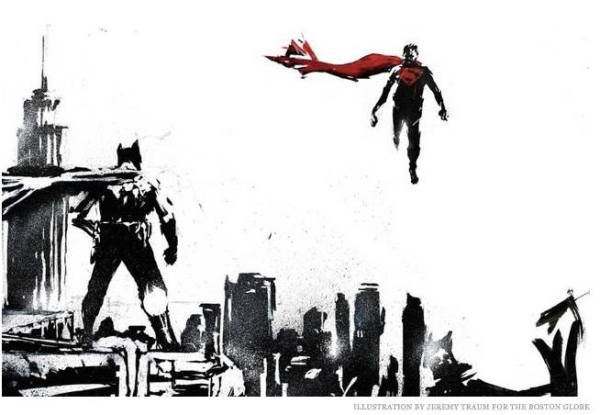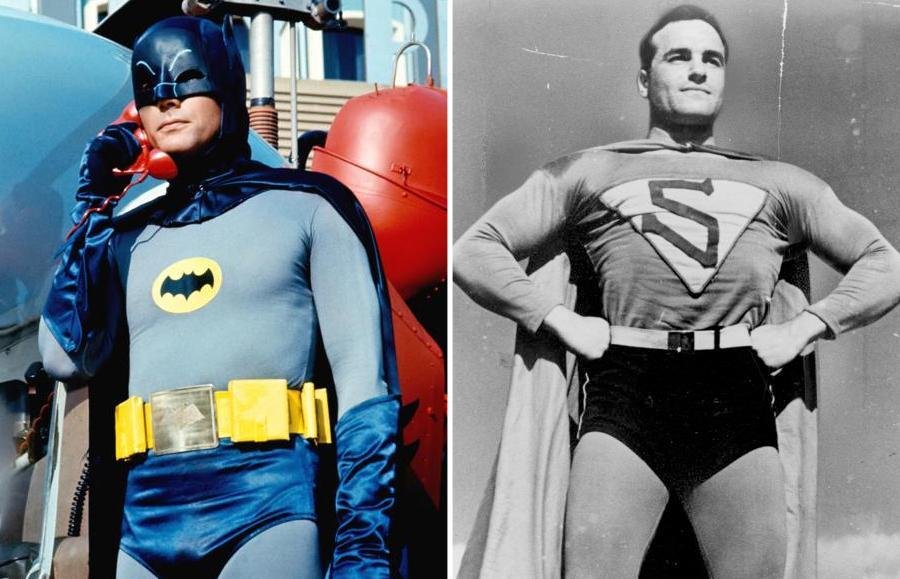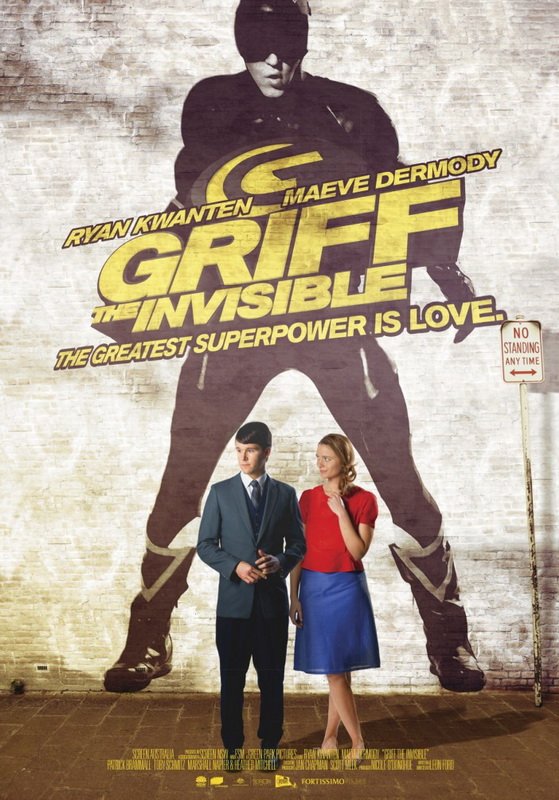What makes superheroes so super?

So why have superhero yarns become among the most reliable of money-makers? The way I see it, the superhero genre speaks to many of our culture’s pent-up voices and internal desires. Over at WBUR's TheARTERY, I talk about why.
Batman vs. Superman Smackdown!
 In this 3-parter in The Boston Globe, I give you (almost) everything you wanted to know about Batman and Superman, in advance the new “Batman v Superman: Dawn of Justice" movie, including: 1) a look at the new movie in the context of previous Batman and Superman films (and if Affleck is up to the task of being the Caped Crusader); 2) an overview of “Batman and Superman at the movies” and 3) a Batman/Superman fact sheet.
In this 3-parter in The Boston Globe, I give you (almost) everything you wanted to know about Batman and Superman, in advance the new “Batman v Superman: Dawn of Justice" movie, including: 1) a look at the new movie in the context of previous Batman and Superman films (and if Affleck is up to the task of being the Caped Crusader); 2) an overview of “Batman and Superman at the movies” and 3) a Batman/Superman fact sheet.

MOVIE REVIEW: "Griff the Invisible" joins the growing ranks of DIY superheroes
 [This originally appeared in the Boston Globe]
[This originally appeared in the Boston Globe]
Between the recent spate of spandex-stretching franchises clogging the screen - lanterns, hornets, Norsemen, captains - and the trend of movies about everyday people with save-the-day complexes, it’s beginning to look like we’re a superhero-obsessed culture.
“Griff the Invisible,’’ posits itself firmly in this latter, DIY tradition, a budding genre already well trampled by “Kick-Ass,’’ “Super,’’ “Defendor,’’ and “Scott Pilgrim vs. the World.’’ In these movies, average Jacks and Jills, sans superpowers to speak of, craft their own costumes to fight crime. These vigilantes may or may not be crazy.
Here, Australian writer-director Leon Ford, making his feature debut, casts Ryan Kwanten (HBO’s “True Blood’’) as the introverted Griff, a browbeaten office worker who wears a yellow raincoat to “disappear’’ during the day, and dons a black, Batman-like outfit to prowl Sydney at night. He’s tricked out his apartment with surveillance equipment and a hot line to the police commissioner.
As Griff explains to his protective older brother (Patrick Brammall), who begs him to end his dangerous cape crusading, “Sorry, Tim, I made a promise to rid this city of evil. It’s not a choice. It’s a responsibility.’’
His sense of duty may not be a choice for another reason: Griff is mentally ill. Or is he? That’s the question “Griff the Invisible’’ dangles over the viewer like a thought balloon - what measure of fantasy and reality balances the world of this magically-thinking nerd?
The ante is upped when a woman Tim is dating, Melody (Maeve Dermody), herself a dreamer in a different way, falls for Griff. Her geekery involves a belief in her ability to walk through walls. She spouts statistics and bumps her head a lot.
Griff’s “invisibility’’ and alter-ego games serve as metaphors. The bad guys are slaves to social norms, Ford is saying, “for seeing the world one way,’’ while a minority are heroes for refusing to grow up and keeping their freak on. Cute idea, if not terribly original.
Yet “Griff the Invisible’’ is really a rom-com, and thus depends on sparks flying between the two lovers. Yes, as the romance blossoms, our hero is vindicated when Melody accepts his quirks, even enables his fantasy life. But the touches of magical realism begin to feel gimmicky. By the final frame, this romance never feels real enough.
Ethan Gilsdorf can be reached at www.ethangilsdorf.com. ![]()